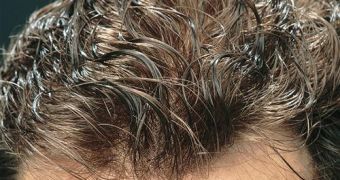Hair loss and subsequent baldness are common among men, so much so in fact that most of us have grown to see it as a fact of life, a result of bad genes and a process that cannot be stopped, merely delayed once it kicks in. Hair in males is often seen as a symbol of strength and virility, with the result that baldness can have terrible effects on our boyfriends' or husbands' self-esteem. However, a team of scientists from the British Cambridge-based biotechnology firm Intercytex claims that they have developed the perfect cure for baldness - and believe it or not, it involves cloning.
The whole technique revolves around tiny scalp cells called dermal papilla cells, located at the base of the hair follicle and responsible for triggering hair growth. Men go bald because these cells begin to die out, which causes hair to thin and eventually stop growing completely. The treatment developed by Intercytex relies on removing some of these cells from the scalp, multiplying or cloning them and then injecting them back into the scalp, where they help start hair regrowth. Currently, the most radical form of baldness treatment involves hair transplants, which are expensive and often yield patchy results, in the sense that the relocated hair has an unnatural "tufty" look.
Dr Paul Kemp, Intercytex's chief scientific officer thinks that the treatment technique developed by his company will revolutionize hair care. "People will use this when they are starting to go bald - they'll come and see us, we'll take a few dermal papilla cells, grow them up in the lab, freeze most of them and inject some. They can keep coming back as the balding process continues. I'm convinced it will work, it is just a question of fine-tuning the technique", he added. The procedure may sound easy, but it's not completely pain-free - in order for the hair regrowth process to jump-start, a typical bald head will need no less than 1,000 injections - with each jab penetrating 3mm into the skin. But whoever said beauty came cheap?

 14 DAY TRIAL //
14 DAY TRIAL //